Today, a 25-ton Chinese rocket booster will collide with the planet. What is the danger?
Today, a 25-ton Chinese rocket booster will collide with the planet. What is the danger?
Updated on August 01, 2022 12:45 PM by Emily Hazel
China's unfinished Tiangong space station will reenter Earth's atmosphere
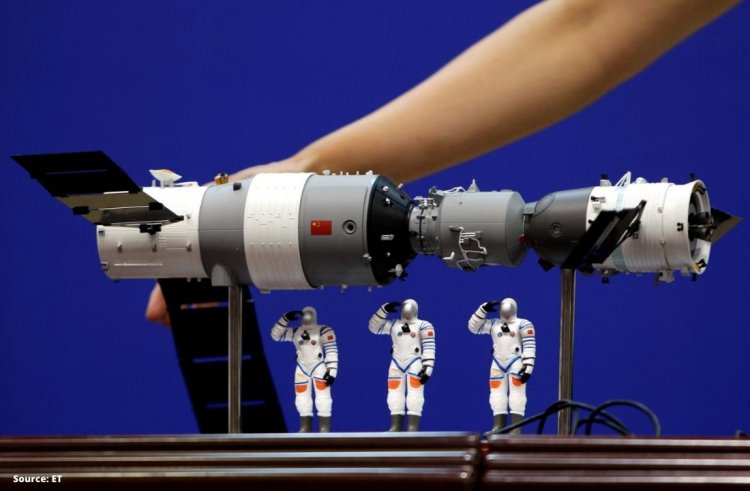
Researchers at The Aerospace Corporation's Center for Orbital and Reentry Debris Studies predict that the roughly 25-ton rocket stage, which launched on July 24 to deliver the Wentian laboratory cabin module to China's unfinished Tiangong space station, will reenter Earth's atmosphere on July 30 at 12:15 p.m. ET, give or take one hour.
The Aerospace Corporation, a nonprofit research organization, supported by the American government and based in California, says that the likely debris field encompasses the United States, India, Australia, Africa, Brazil, and Southeast Asia.
A rocket's most significant and vital part is often the booster
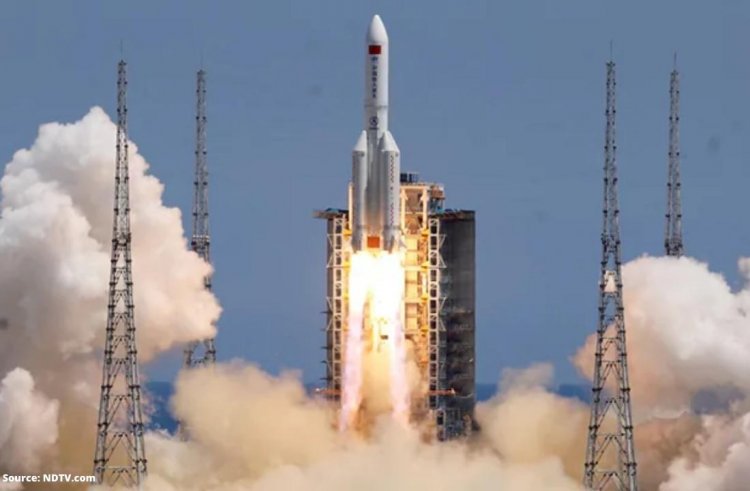
Typically, rocket boosters' trajectories are designed to safely escape orbit and splash down in the water or undertake a controlled reentry with a few engine bursts if they enter orbit.
The Long March 5B booster engines cannot be restarted, which dooms the booster to spiral about the Earth before landing in an unforeseeable place. China has done this three times in the past two years. The second time, in May 2021, the rocket debris fell into the Indian Ocean without injury.
Related: Chinese booster rocket is expected to fall on Earth early next week!
Add Block
The first incident was in May 2020
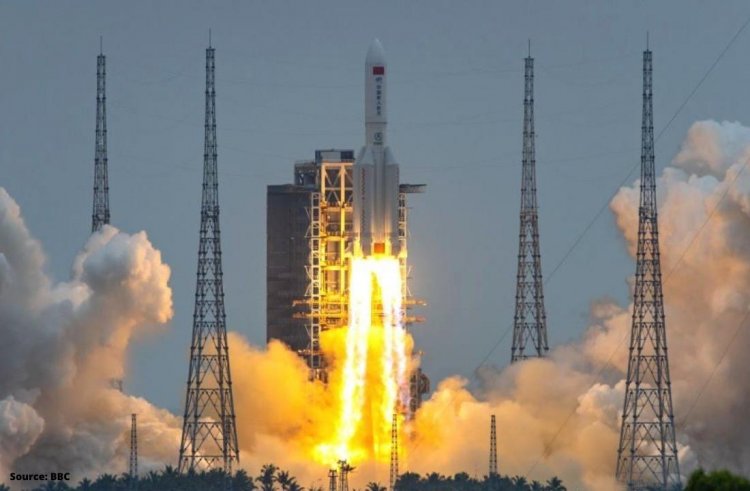
Reportedly resulted in metallic objects raining down upon towns in the Ivory Coast, albeit no known injuries were sustained. The large areas don't burn up properly in the atmosphere, making them particularly risky during uncontrolled reentry.
Marlon Sorge, a space debris expert at The Aerospace Corporation, stated that the general rule of thumb is that 20 to 40 percent of the mass of a large object will reach the ground. Still, the precise figure depends on the design of the thing. "In this instance, we anticipate between 6 and 10 tonnes or roughly 5 to 9 metric tonnes."
According to Sorge
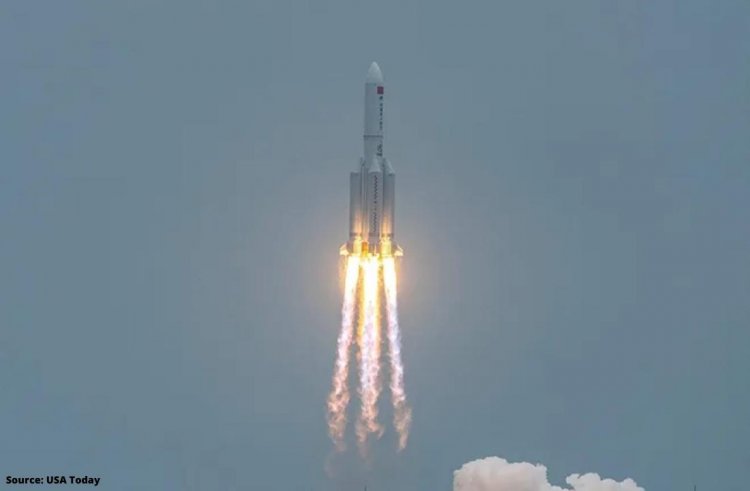
"For an upper stage, we typically see small and medium tanks surviving more-or-less intact, as well as significant engine components." "This core stage's huge tanks and skin will probably split apart. What remains will vary depending on the materials' melting points.
The Aerospace Corporation claims that some surviving debris may land in a populated location because more than 88 percent of the world's population is situated within the rocket's orbital footprint.
Add Block
Chances of being harmed by this debris are between 1 in 1,000 and 1 in 230
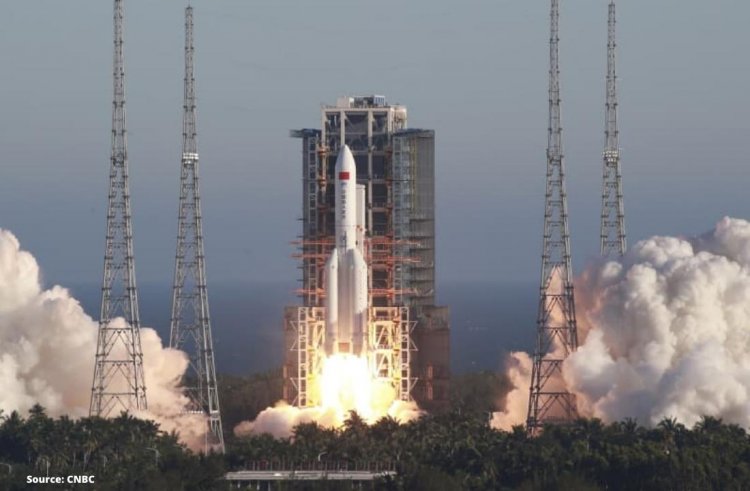
But according to Muelhaupt, the chances of being harmed by this debris are between 1 in 1,000 and 1 in 230. The risk to a particular person is far lower – between 1 in 6 trillion and 1 in 10 trillion.
According to a 2019 report released by the U.S. Government Orbital Debris Mitigation Standard Practices, the casualty risk threshold for the uncontrolled reentry of rockets is 1 in 10,000.
Add Block
U.S. space scientists have issued some severe warnings to China
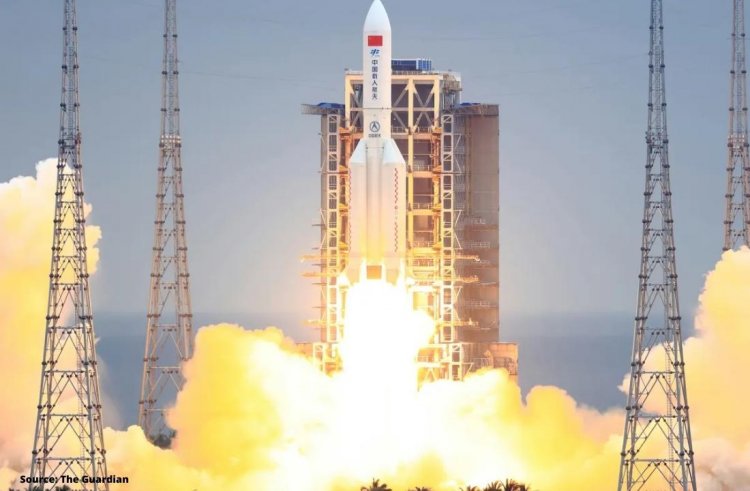
For choosing to launch rockets without the capability for a controlled return despite the relatively minimal risk of harm to people or property. The "spacefaring nations must reduce the dangers to persons and property on Earth of reentries of space objects and promote transparency surrounding those activities." "It is obvious that China's space junk does not adhere to responsible standards."
People have to prepare because it did cause property damage the last time [in 2020]. "During a press briefing, Ted Muelhaupt, a consultant with The Aerospace Corporation and a space expert, remarked.
China's "shameless exaggeration"
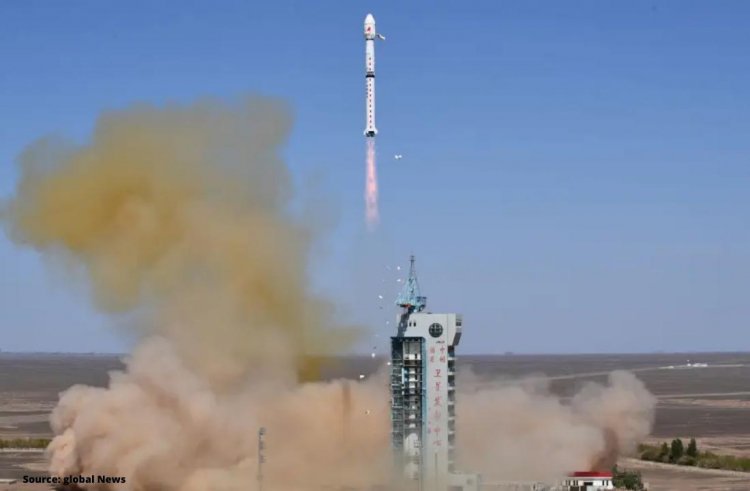
In 2021, Hua Chunying, then-spokesperson for the Chinese Ministry of Foreign Affairs, alleged that Western reportage on China's falling rockets was biased and utilized "textbook-style double standards."
Every major spacefaring nation, including China, is a party to the 1967 Outer Space Treaty, which states that any country sending an object into space is responsible for any harm the thing may do to third parties when it crashes back to Earth.
All of the significant launch nations will have pieces of space objects
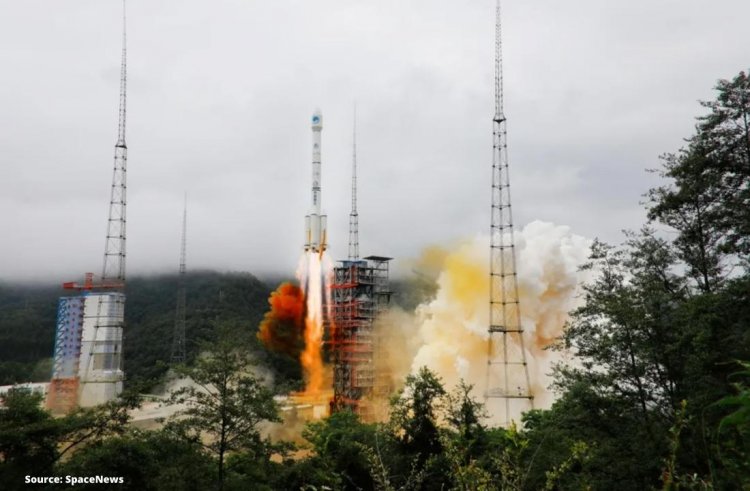
That a return to Earth in an uncontrolled manner, according to Christopher Newman, a professor of space law and policy at Northumbria University in London, but reaching an international agreement on how to handle them is challenging given the current geopolitical tensions.
"This problem demands an international solution, especially when items like rocket corpses are three times more likely to impact cities in the 'Global South. As a lawyer, it is evident that momentum for change only arises after a catastrophe or tragedy; it is frequently too late. All space users are aware of the warnings; the question is whether they will move to address them right now.





